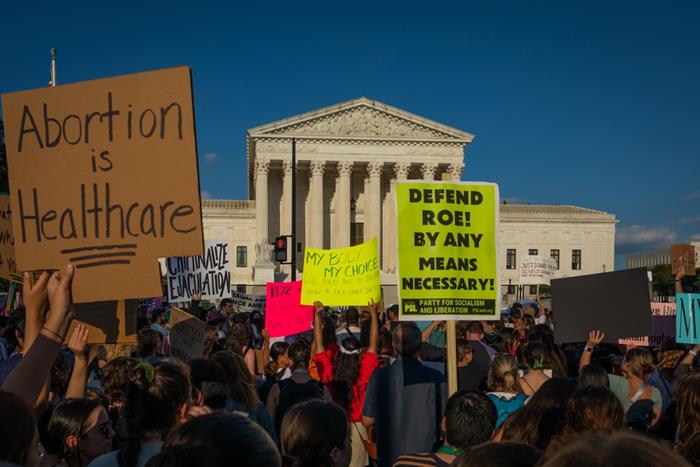US companies find themselves under attack after some talked up the reproductive rights of their employees, following the decision to reverse Roe v. Wade, while at the same time continuing to make political donations to anti-abortion politicians.
The criticism comes as part of the continuing fallout from the Supreme Court’s June decision to overturn the ruling that, in 1973, established abortion rights in the US.
Many companies were quick to reassure employees that they would pay for travel costs to states where abortion remained legal, after 26 states either outlawed or restricted access to abortion.
Abortion represents a highly charged corporate governance issue for companies that provide healthcare benefits to their employees. But it seems some corporates spoke up for workers, even while continuing to donate to Republican politicians who had declared their support for ending to Roe v. Wade.
However, some now say companies must clarify their stance. Writing for the Oxford University business law blog, Katherine Giscombe, a consultant and author behind a much quoted study, Women of Colour in Corporate Management, says: “Businesses that purport to champion DEI in their ranks need to walk the talk and act as a countervailing force to the SCOTUS [US Supreme Court] decision on abortion that puts the lives of many women in danger.”
She adds: “This investment in employee welfare will pay dividends to the wellbeing of the workforce and protect reputational capital that these organisations are in danger of losing.”
Giscombe cites AT&T as one example of a company juggling reproductive rights with political donations. In the summer, the company announced a policy offering travel expenses for medical services and yet continued to donate to so-called “trigger ban” politicians—those that back anti-abortion laws.
Conflicting values
Giscombe’s is not the first to note US companies struggling with, or apparently holding, conflicting values. Earlier this year, Harvard academics Lucian Bebchuk and Roberto Tallarita wrote about members of the Business Roundtable that claimed their organisations had become stakeholder-led companies, concluding that their statements had been “mostly for show” after failing to find evidence of their newly found values.
The response to ending Roe v. Wade is still raw in the US. Many commentators speculate that the Supreme Court’s decision may have played a significant role in the Republican Party failing to produce a so-called “red wave” of support in recent mid-term elections. Democrats retained control of the Senate, despite predictions they would lose.
In the aftermath of the June decision, many companies rushed out messages of support. Patagonia, the outdoor brand, published on LinkedIn that its healthcare plan covered abortion care. The note declares: “Where restrictions exist, travel, lodging and food are covered.”
US retailer Dick’s Sporting Goods, which has stores in 48 states, tweeted on the day of the ruling that it would pay up to $4,000 in travel costs for abortion care. The company said it was “prepared to ensure that all teammates have consistent and safe access to the benefits we provide, regardless of the state in which you live.”
Roe v. Wade is just one of many issues that have divided US society and become part of the corporate governance landscape too. In Florida, governor Ron DeSantis clashed with Disney over LGBTQ+ rights, while many Republicans have opposed the introduction of mandatory climate risk reporting for companies, some arguing it is part of a “woke” liberal agenda that companies should avoid.
These divisions show no sign of abating and companies will be forced to pick a side. Abortion rights is one area where pressure will likely be maintained.





